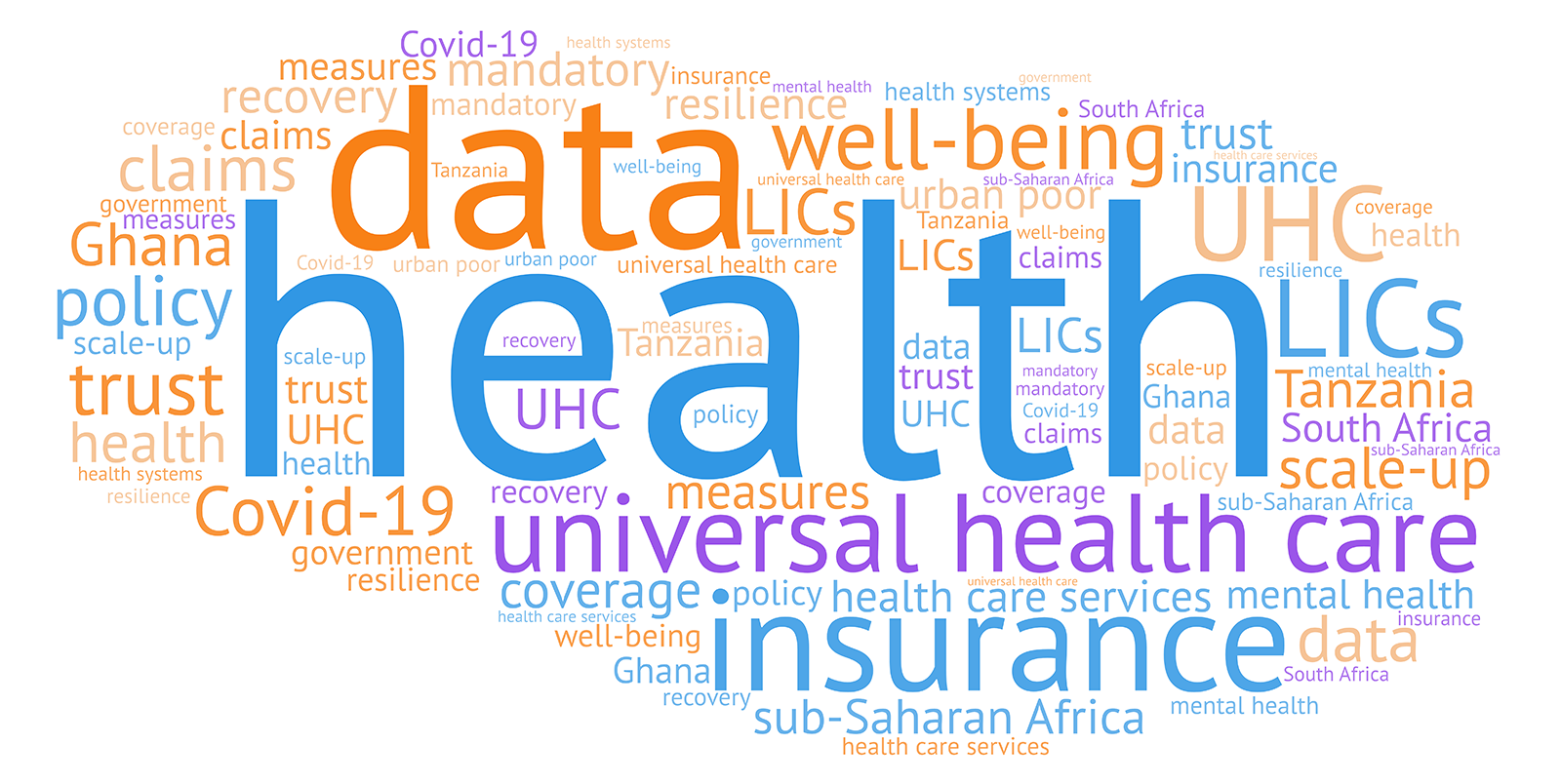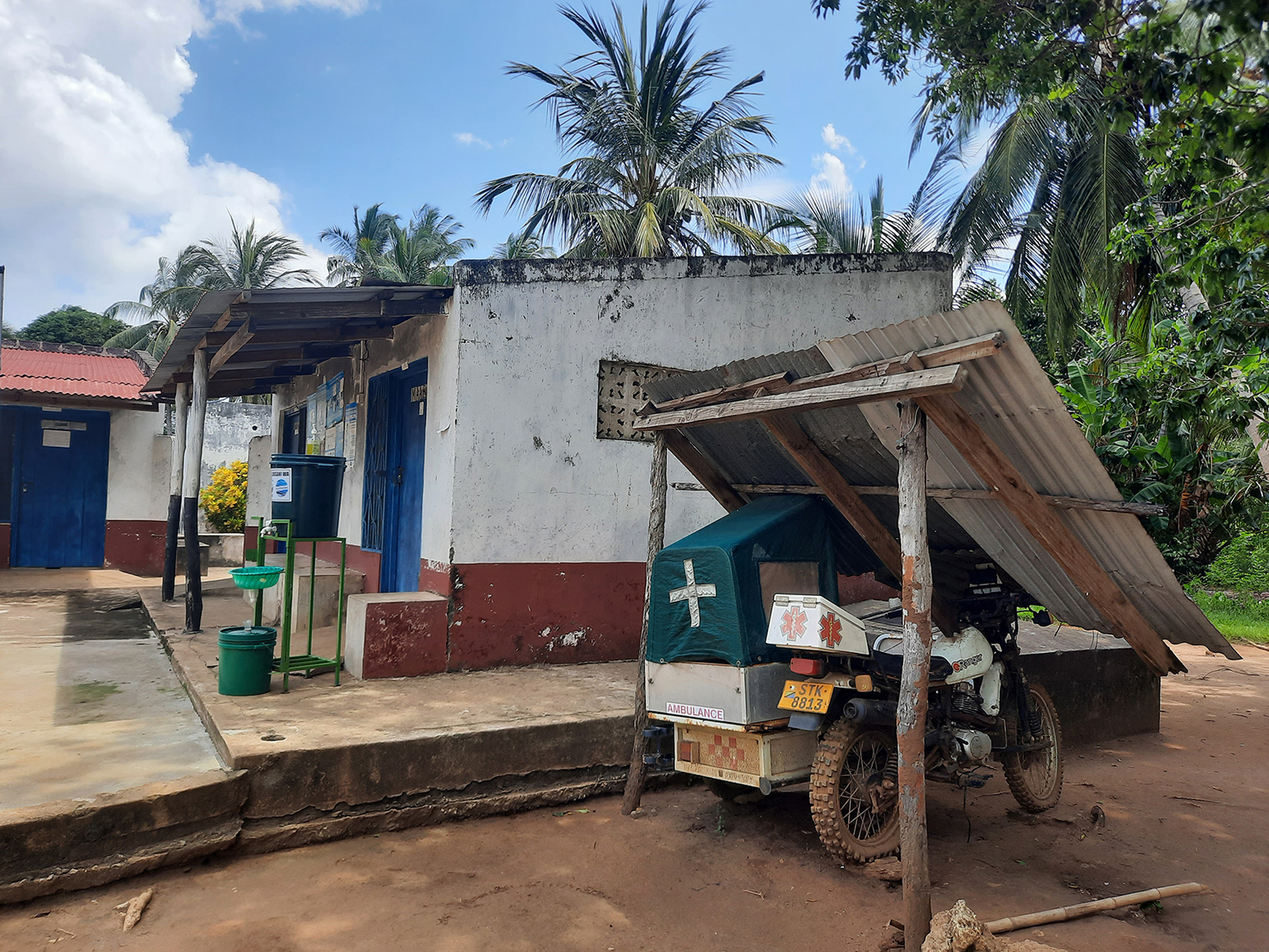Towards inclusive, sustainable, and resilient health systems in sub-Saharan Africa
Congrats to Kathrin Durizzo for her doctoral defence and her outstanding research on Universal Health Coverage in sub-Saharan Africa.

Kathrin Durizzo’s thorough thesis covers three perspectives of moving towards Universal Health Coverage (UHC): the functioning of a mandatory health insurance scheme, the impact of the COVID-19 pandemic on the ability of the health system to provide ongoing essential health services and the impact of the COVID-19 pandemic on people’s lives.
In her Ph.D., Kathrin skillfully combined economics, data science, and public health to analyze how health systems in low-income countries can be designed to be more financially efficient and more socially equitable.

The impact of the COVID-19 pandemic
One year into her Ph.D., Kathrin was confronted with the onset of the COVID-19 pandemic in 2020 and primary data collection in health centers became impossible. As a result, her research project on health insurance had to be suspended for two years.
Despite this challenge, Kathrin showed exceptional adaptability and successfully initiated and managed a second major research project. In this project, Kathrin focused on analyzing the impact of the pandemic and related government policies on the use of health services and the well-being of low-income communities in Ghana and South Africa. Both countries imposed a strict lockdown.
For her Ph.D., Kathrin collaborated with colleagues from the Ifakara Health Institute, Tanzania, the University of Ghana, the University of Pretoria and the Swiss Tropical and Public Health Institute.

Exploring resilience in health systems and people’s well-being
In the case of the health system in Ghana, Kathrin and her partners could show that the provision of some essential services was not interrupted due to an overburdened health system but rather a combination of fear and very strict social distancing regulations. Recovery was much faster than expected; however, not all districts have fully recovered, calling for a particular policy focus on ensuring UHC.
In the case of the well-being of low-income communities in Ghana and South Africa, Kathrin and her partners could show that costly government interventions are only effective if people have the infrastructure, the knowledge and the trust to follow them. Additionally, they pointed out that although the economic situation might have recovered for most people, mental health issues remain a problem, calling for broad and country-specific policies to move towards UHC.
Great interest from researchers, policymakers, and practitioners
"Through their outstanding work, Kathrin and her partners have made a significant contribution to building the scientific foundation for inclusive, sustainable and resilient health systems in sub-Saharan Africa," says Isabel Günther, Professor of Development Economics at ETH Zurich, who supervised Kathrin’s Ph.D.
Three of the five dissertation papers are already published in peer-reviewed journals. Additionally, the projects led to several policy briefs and media publications.
Downloads
- external page Kathrin Durizzo, Kenneth Harttgen, Fabrizio Tediosi, Maitreyi Sahu, August Kuwawenaruwa, Paola Salari, Isabel Günther: Toward mandatory health insurance in low-income countries? An analysis of claims data in Tanzania. Health Economics, 31(10): 2187-2207. 2022.
- external page Kathrin Durizzo, Edward Asiedu, Antoinette van der Merwe, Attie Van Niekerk, Isabel Günther: Managing the COVID-19 pandemic in poor urban neighborhoods: The case of Accra and Johannesburg. World Development, 137: 105175. 2021.
- external page Kathrin Durizzo, Edward Asiedu, Antoinette van der Merwe, Isabel Günther: Economic Recovery but Stagnating Mental Health During a Global Pandemic? Evidence from Ghana and South Africa. The Review of Income and Wealth, 68(2): 563-589. 2022.